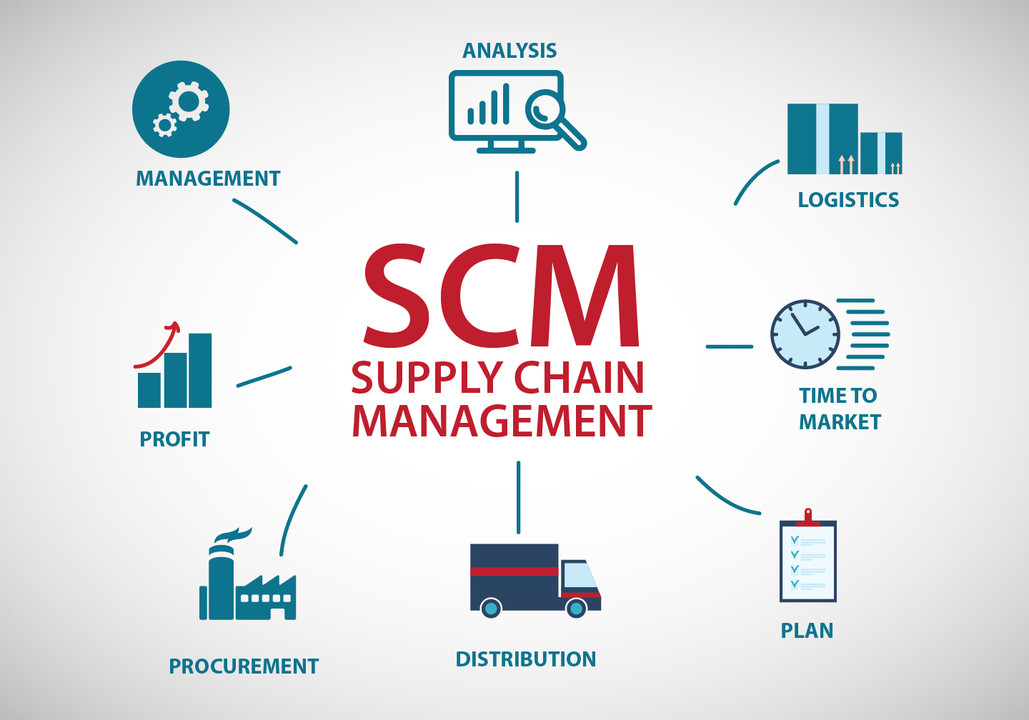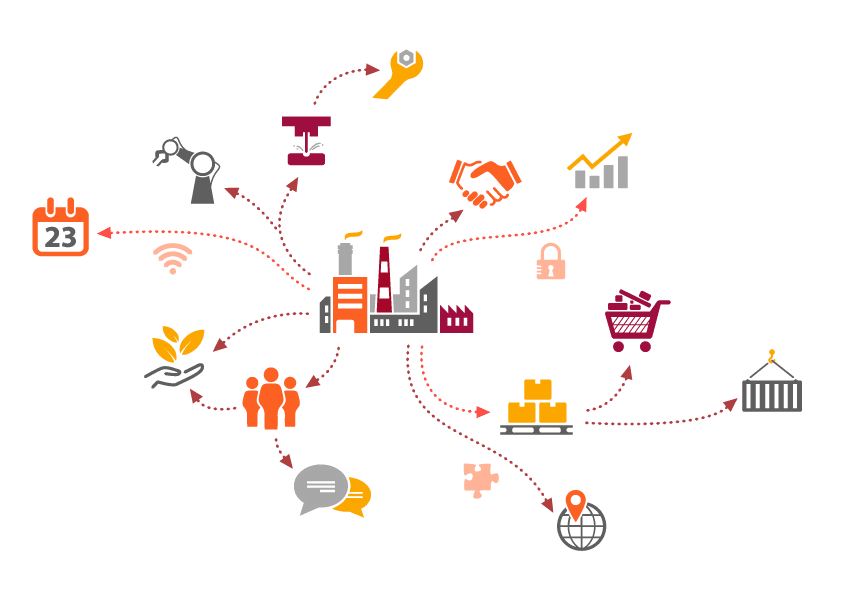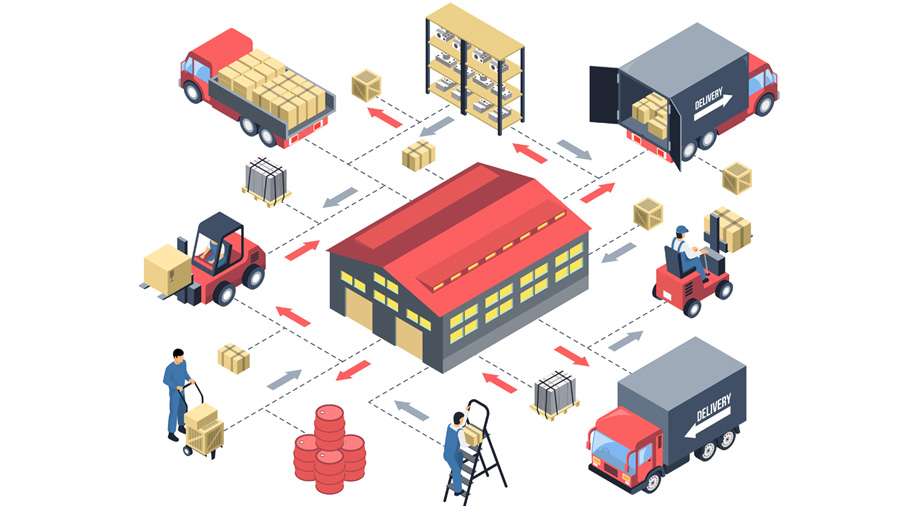Supply Chain Management (SCM) has undergone a profound transformation over the years, and one of the key driving forces behind this evolution has been the integration of Information Technology (IT) into its core operations. The fusion of IT with SCM has not only revolutionized the way businesses manage their supply chains but has also created a demand for skilled IT professionals to navigate this dynamic landscape.
In today’s fast-paced global economy, the efficiency and effectiveness of supply chain operations can significantly impact a company’s success. The intricate web of processes involved in SCM, spanning from procurement to production to distribution, requires seamless coordination and real-time data insights. This is where Information Technology steps in as a game-changer.

The Evolution of IT in SCM:
The evolution of IT in SCM can be traced back to the adoption of Enterprise Resource Planning (ERP) systems in the 1990s. These systems acted as centralized databases, integrating various business functions like finance, manufacturing, and inventory management into a single platform. However, with technological advancements, the scope of IT in SCM expanded exponentially.
Today, cutting-edge technologies like Artificial Intelligence (AI), the Internet of Things (IoT), Blockchain, and Big Data Analytics have redefined SCM practices. For instance, AI and Machine Learning algorithms are leveraged to predict demand patterns, optimize routes for transportation, and automate inventory management. IoT devices enable real-time tracking of goods, ensuring transparency and visibility across the supply chain. Blockchain technology ensures secure and transparent transactions, especially in complex global supply chains.
The seamless integration of these technologies into SCM has led to increased efficiency, reduced operational costs, minimized errors, and improved customer satisfaction. However, the effective implementation and management of these technologies require skilled IT professionals well-versed in SCM processes and IT systems.
The Demand for IT Professionals in SCM:
As businesses embrace digital transformation in their supply chain operations, there is a surging demand for IT professionals specialized in SCM. Companies are actively seeking individuals with a blend of technical expertise and an understanding of supply chain intricacies.
In a bustling IT hub like Bangalore, where technological innovation is at its peak, the demand for IT professionals in SCM is particularly high. IT vacancies in SCM-related roles in Bangalore have witnessed a steady rise, showcasing the need for skilled individuals who can navigate the complexities of modern supply chains with technological finesse.
Bridging the Gap:
While the demand for IT professionals in SCM continues to soar, there exists a gap between the skills required by the industry and the talent pool available. To address this gap, educational institutions and training centers have started offering specialized courses and certifications that cater to the intersection of IT and SCM. These programs equip individuals with the necessary skills to thrive in this evolving landscape, making them valuable assets to companies seeking to enhance their supply chain capabilities.
Additionally, continuous upskilling and reskilling programs are imperative for IT professionals already in the field to stay updated with the latest technologies and trends shaping SCM practices. This not only benefits individuals by broadening their career prospects but also adds substantial value to the organizations they work for.

Agile Supply Chain Management: Embracing Technological Agility
In today’s fast-paced and dynamic business environment, the concept of Agile Supply Chain Management has emerged as a transformative approach to streamline operations and adapt swiftly to changing market demands. At its core lies a fusion of IT and SCM, reshaping traditional supply chains into agile, responsive, and efficient networks.
The Principles of Agile SCM:
- Real-time Data Integration: Agile SCM relies heavily on the seamless integration of IT systems to gather, process, and utilize real-time data across the supply chain. Technologies like IoT sensors and AI-driven analytics enable constant monitoring and analysis, providing actionable insights instantaneously.
- Flexibility and Adaptability: Embracing IT in SCM allows for flexible and adaptable supply chains. Through predictive analytics and AI algorithms, businesses can forecast demand fluctuations, anticipate disruptions, and swiftly adjust production, inventory, and distribution strategies accordingly.
- Collaboration and Transparency: IT tools facilitate enhanced collaboration and transparency among stakeholders within the supply chain. Blockchain technology, for instance, ensures secure and transparent transactions, fostering trust and visibility across the network.
- Customer-Centric Focus: Agile SCM places a strong emphasis on meeting customer demands efficiently. Utilizing IT-driven customer analytics helps in understanding preferences, enabling personalized experiences, and ensuring timely deliveries, thereby enhancing customer satisfaction.
Implementing Agile SCM with IT Innovations:
1. AI and Predictive Analytics:
AI-powered predictive analytics can forecast demand, optimize inventory levels, and anticipate potential disruptions. Algorithms analyze historical data, market trends, and external factors to provide accurate predictions, enabling proactive decision-making.
2. IoT and Real-time Tracking:
Integrating IoT devices throughout the supply chain allows for real-time tracking of products. This not only ensures better inventory management but also enables proactive issue identification and resolution, enhancing overall efficiency.
3. Cloud-Based Collaboration Platforms:
Cloud-based platforms facilitate seamless collaboration among different entities in the supply chain. They enable instant data sharing, collaboration on projects, and efficient communication, promoting agility and responsiveness.
4. Digital Twin Technology:
Digital twin technology creates virtual replicas of physical supply chain elements. By simulating various scenarios and testing strategies in a risk-free environment, businesses can optimize operations and mitigate potential risks before implementation.
The Impact and Future of Agile SCM:
Implementing Agile SCM practices driven by IT innovations can yield significant benefits. It not only enhances operational efficiency, reduces lead times, and minimizes costs but also fosters innovation and sustainability within the supply chain.
Looking ahead, the integration of emerging technologies like 5G, edge computing, and advanced robotics will further revolutionize Agile SCM. These advancements will continue to refine supply chain processes, making them more responsive, adaptable, and resilient in an ever-evolving global marketplace.
In conclusion, embracing Agile SCM through the integration of Information Technology represents a paradigm shift in how businesses approach supply chain management. By leveraging IT innovations, companies can navigate uncertainties, meet customer expectations, and stay ahead in a highly competitive landscape, ensuring sustained growth and success.



